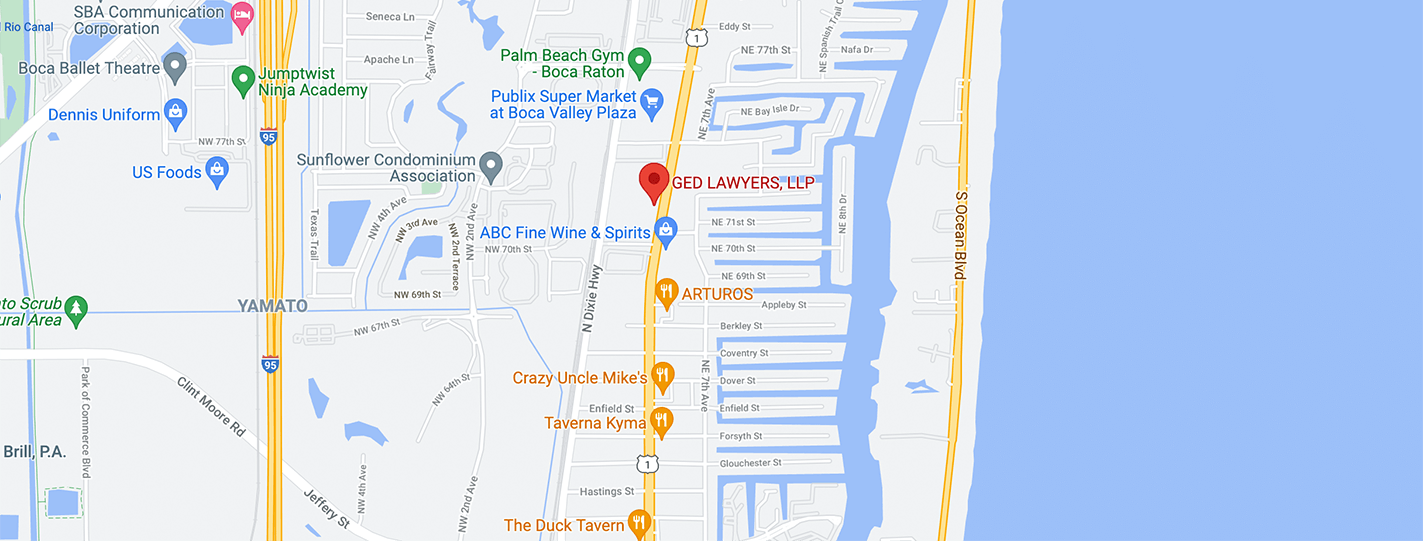
Although many states have a blanket ban on distracted driving that specifically includes talking and texting, Florida’s cell phone laws work slightly differently. In most cases, driving while taking on a cellphone in Florida is legal. However, you must talk in “hands-free” mode (e.g., speaker, Bluetooth, or wired headphones) while driving through school zones or construction sites. Texting while driving, on the other hand, is prohibited in Florida.
What Is Distracted Driving?
Distracted driving happens anytime a driver allows an outside stimulus like a cellphone to take their attention away from the road. According to the National Highway Transportation Safety Administration (NHTSA), talking on the phone while driving slows drivers’ reaction times up to 40%. That is part of why Florida required “hands-free” methods of talking on cellphones in school zones or construction sites and banned texting while driving in 2019.
However, drivers should keep in mind that distracted driving is a choice. Even drivers who comply with Florida’s hands-free requirement are responsible for their actions while distracted driving. This means that if someone hits you while talking on their cellphone while still obeying Florida’s cellphone law, you may be able to demand compensation for damages from the distracted driver.
we are here for our clients and their legal needs, with proficiency in a broad range of fields. GET A FREE CONSULTATION
Why Is Texting While Driving Banned?
Some modern smartphones have talk and text features, but in most cases, when drivers text while driving, they have to take their eyes off the road and their hands off the steering wheel. Experienced Florida personal injury lawyers know this dangerous practice significantly elevates the risk that the distracted driver will cause an accident. In fact, a large volume of statistical information proves the risks of texting while driving.
The United States Department of Transportation (DOT) conducted a study of the risks associated with texting while driving and found the following:
- Drivers who text while driving are 23 times more likely to be involved in accidents than other drivers.
- Drivers who text while driving take their eyes off the road for an average of 4.6 seconds, which is enough time for a vehicle to go 100 yards.
It goes without saying that drivers not looking at the road for 100 yards while they read or write a text pose a tremendous danger to themselves, other motorists, and pedestrians.
What Are the Penalties for Texting While Driving in Florida?
Florida classifies texting while driving as a primary offense, which means any law enforcement officer who sees a driver texting behind the wheel has probable cause to pull them over and cite them for the violation. The penalties for texting while driving in Florida are as follows:
- First offense: $30 fine
- Second offense: $60 fine
They will also receive a three-point penalty on their driver’s license, and drivers who accumulate too many points can have their driver’s license suspended or revoked. In addition to these penalties, a driver who causes an accident if they are texting while driving can face more severe penalties (e.g., vehicular manslaughter or vehicular homicide) if the accident leads to a fatality or significant injury.
Distracted Drivers in Florida Are Liable for Damages They Cause
Drivers must always keep in mind that Florida law holds them responsible for all their actions behind the wheel. That responsibility exists in both the criminal and civil sides of the judicial system. Even though it’s legal to talk on the phone while driving, anyone injured can hold a driver liable for damages in an accident in which distracted driving was a contributing cause.
Examples of the damages victims of distracted driving accidents can demand include:
- Vehicle repair costs
- Medical bills
- Reimbursement for lost wages and income
- Replacement value of any personal property destroyed in the accident
In Florida, distracted driving accident victims are also allowed to demand non-economic damages from negligent drivers. Some examples of non-economic damages include:
- Pain and suffering
- Diminished quality of life
- Mental anguish
Florida’s No-Fault Insurance Law and Distracted Driving
Florida’s no-fault insurance law requires every driver to carry a personal injury protection policy that covers them for up to $10,000 in damages if they are hurt in an accident. So, if you are hit by a driver while texting or talking on their cellphone, this policy will be your first option in terms of collecting damages.
with compassionate advice and professional assistance. CALL US TODAY
Call Today for Legal Help – We Can Explain How Florida’s Cellphone Laws Could Affect Your Case
With that said, medical bills and vehicle repair costs can often exceed $10,000, and when that happens, accident victims have the right to demand damages from the distracted driver (or their insurance carrier). If you’ve been injured in an accident with a distracted driver and have more than $10,000 in damages, you can call Ged Lawyers to represent you and demand damages on your behalf. Our personal injury lawyer can explain how Florida’s cellphone laws work and how it applies to your potential case.
